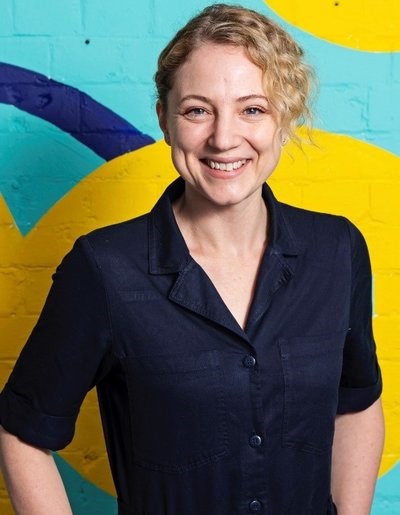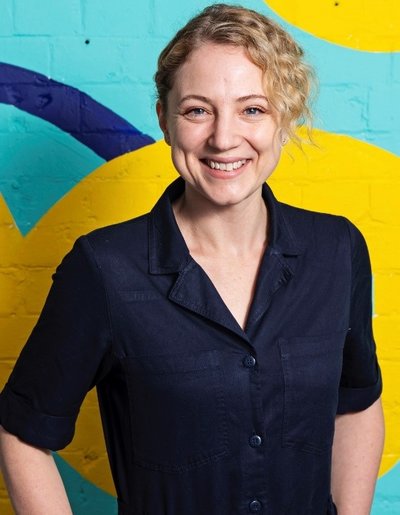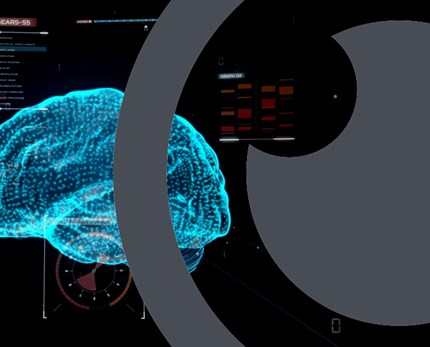Finding learning in unexpected places: Part two

- 08 June 2020
Learning and development is central to the career of any marketer. For Sarah Ellis, author of The Squiggly Career, this is not a new phenomenon, but one that has grown in significance as time goes on.
With frequent fast-paced adoption of new technology and techniques and, more recently, the potential for economic uncertainty post-coronavirus crisis, it has perhaps never been more important to be at the top of your game to see off the challenges to come.
This year, the Chartered Institute of Marketing (CIM) announced significant changes to our Chartered Marketer status that will allow more marketers than ever before to gain recognition by investing in continuing professional development (CPD). In this five-part series, hear from marketers at varying stages of their career on why learning is a priority – and how it can often be found in unexpected places. If you missed part one, catch up here.
Sarah Ellis, co-founder, Amazing If and author of The Squiggly Career
Sarah Ellis began her career in marketing almost twenty years ago, before pivoting to focus on the world of work itself, co-founding career development company Amazing If in 2013.



As the workplace has changed, so too have the skills required to succeed, Ellis shares: “Previously, in the early stages of a career, you’d invest in the technical skills – the ‘what’ of learning, such as how to write a brief or run a campaign. Then, the more senior you get, the more you would invest in the ‘how’, which is more focused in behaviours.” What Ellis now finds is that it’s not as binary as it used to be, and the distinction between the skillsets of marketers at varying levels of seniority have shifted: “You could now be at the very early stages of your marketing career and know more about digital than your marketing director.”
Overcoming this challenge has an inherent learning opportunity, Ellis believes, through mechanisms such as reverse mentoring. This was a tactic implemented at Sainsbury’s, where she spent almost seven years leading on marketing strategy across roles encompassing content, PR and CSR. “Everyone on the board was mentored by someone who was a real digital expert. There was an acknowledgement that those early in their career knew more and could teach senior leaders.”
Techniques such as this underpin the business case for taking a more dynamic approach to learning, and Ellis believes the period of isolation many professionals now find themselves in has shown the importance of having varied learning mechanisms available. However, a broader understanding of what learning looks like is required to make the most of this, she asserts: “To me, learning can look like watching my co-founder Helen [Tupper] share a career tip on Instagram for 3 minutes. If you committed to watching Helen talk about adaptability or resilience every day for a week, you’ve consumed a good 15 minutes of content. That is valid and useful learning.”
However, issues can arise when learning feels necessary or instructed. “Often, people feel like they should learn something, or they’ve been told to, and they’re looking for the quickest and easiest route to do it,” Ellis shares. “What we should be asking ourselves is, where do I learn best? How do I learn best? It’s a process of self-discovery.
“For example, I know that I’m only good at reading non-fiction books if I do something with what I’ve read.” Having that level of awareness can help time-poor professionals to reframe learning into relevant and enjoyable experiences, it’s something Ellis herself has implemented: “Because I like visual thinking, I physically draw out the key ideas from a book as I go. That’s my way of reading in a way that works for me.”
Ellis also advises looking outside of your organisation or sector to find learnings, in moments she describes as ‘random acts of curiosity’: “I subscribe to Stack, a magazine subscription service where every month they choose a magazine for you on any topic. Dog photography, Polish economics, you name it.” Venturing so far away from her day to day often hits upon an unexpected source of inspiration, she shares: “You never know what that might spark.”
Approaching learning in a way that is relevant not only to your learning preferences but also your desired outcomes can be a powerful tool, but it often requires a considerable shift in mindset, Ellis cautions. “You’re asking people to reframe what it means to learn. The reframe is from focusing on formalised learning into seeing learning as continual improvement and professional growth. If you frame learning in that way, you approach things really differently.”
For businesses, seeing learning as a tick-box exercise is not just a short-sighted move, but one that can have real detriment to the experience of the employee. For Ellis, variety is key: “Let’s not assume that everybody learns in the same way. We need to make sure that we are offering individuals lots of different ways to learn that reflect people’s different lifestyles, habits, time, or even just preferences.” Thinking outside of what is “quickest and easiest” is essential, Ellis believes.
It is not only our definition of learning that needs to change; the way we apply it to our day-to-day lives must also shift, according to Ellis: “Learning is only useful if you apply it, if you’re using it to change your behaviour, to experiment, to take action.”
Part of taking action is simply taking responsibility, shares Ellis: “The onus is on the individual to know what they need to learn, why, and how it’ll be useful to their role. It’s important to remember that this might be wildly different to your peers, and that’s OK. This is particularly true of marketing, where one campaign manager might be wanting to specialise, and another wanting to pursue general marketing. Two people could be doing the same job in one organisation and have vastly different learning goals.”
For today’s marketers, being deliberate and focused is at the centre of an effective approach to learning: “We are all learning all of the time, but you’ve got to be intentional about it and know what you’re trying to learn. Then you see so many learning opportunities and moments in your day to day.”
No matter how squiggly your career may be, it’s easier than you think to keep your learning up to date and start your journey to becoming a Chartered Marketer via CIM’s CPD platform. Find out how.

- 0 views

 FAQs
FAQs
 Log in
Log in
 MyCIM
MyCIM





